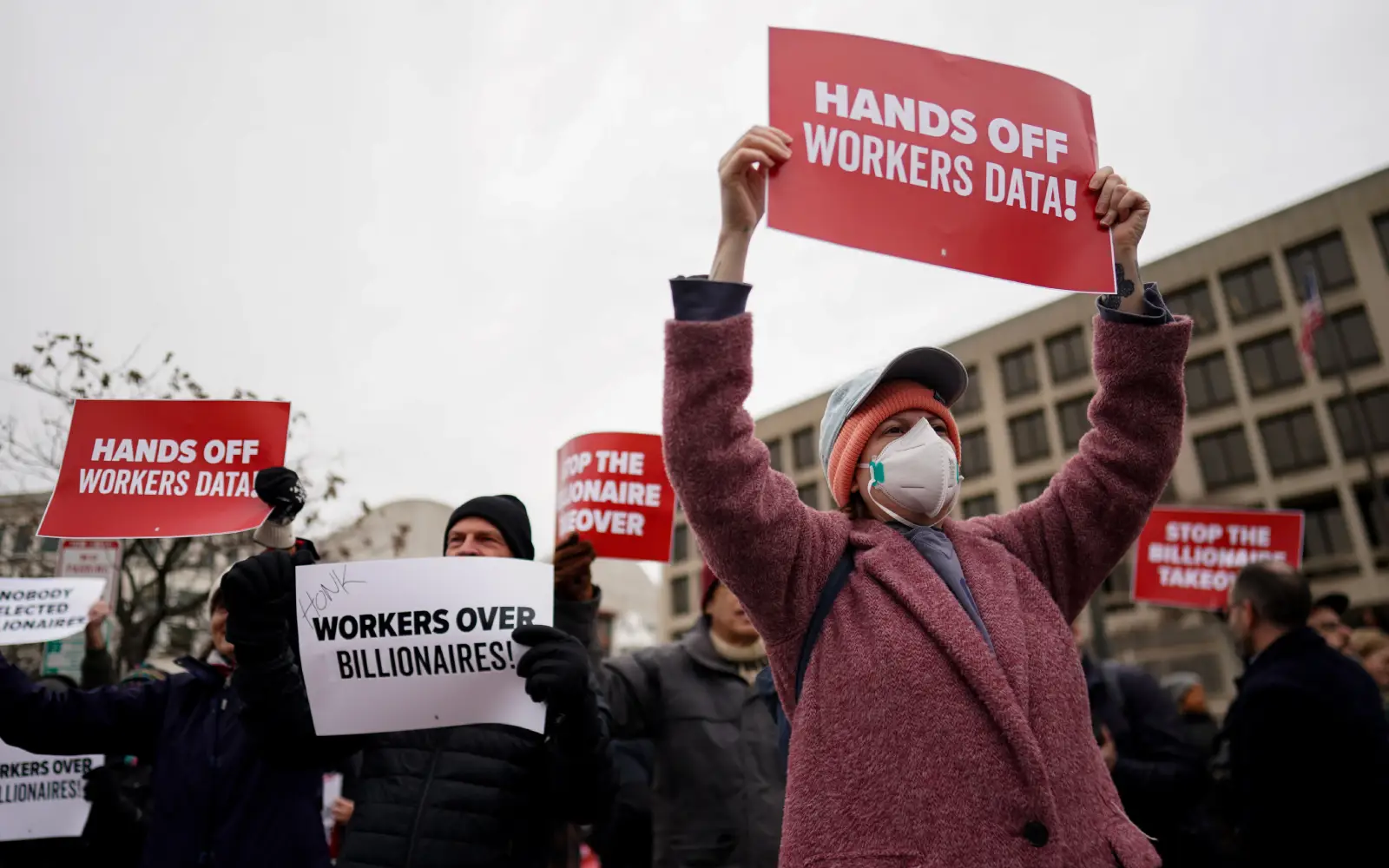
Holden Hopkins is a student at Harvard Law School.
In today’s News & Commentary, a federal judge declines to block DOGE access to DoL data, federal worker “return to office” mandates hinge on readings of management rights, and the EEOC begins pulling back support for trans and gender non-confiorming workers.
As Divya reported last week, a coalition of unions have brought suit against Elon Musk’s Department of Government Efficiency (DOGE), which has been seeking access to internal Department of Labor data. On Friday, US District Court for the District of Columbia Judge John D. Bates ruled that the unions lacked standing, as they failed to demonstrate concrete harm to their members. Despite acknowledging “concerns about defendants’ alleged conduct,” Judge Bates determined there was no immediate legal basis to stop DOGE’s plans. This decision marks another victory for the Trump administration in its push to access federal agency data, despite ongoing legal resistance from labor groups.
The unions sought to protect highly sensitive DOL databases, which contain information on workers’ compensation claims, whistleblower complaints, and market-moving labor statistics. Their lawsuit, filed on February 5th, argued that DOGE’s data access violated the Privacy Act and the Administrative Procedure Act, as the law requires agencies to obtain consent from individuals before disclosing personal records to other agencies. The ruling is a setback for labor advocates who fear that DOGE’s unprecedented intrusion into labor data could undermine worker protections.
The Trump administration’s push to force federal employees back into the office faces serious legal challenges, particularly regarding collective bargaining agreements and management rights. The Office of Personnel Management (OPM) has declared that agencies can override union contracts mandating telework, claiming that decisions on workplace location fall under “management rights.”
But advocates for federal workers argue that such assertions of management rights are overbroad, and that telework is a working condition subject to bargaining. The Federal Service Labor-Management Relations Statute states that government-wide rules which result in a “substantive change in any condition of employment” are required to prompt bargaining. Federal worker unions are already preparing to fight this directive, arguing that it unlawfully circumvents labor agreements and established bargaining rights.
The Equal Employment Opportunity Commission (EEOC) is pulling back from defending its 2024 harassment guidance, which includes gender identity protections, signaling a shift under the Trump administration. Acting Chair Andrea Lucas has stated that the commission “must rescind the guidance,” aligning with the administration’s executive order recognizing only “two sexes.” However, the EEOC currently lacks a quorum to hold an official vote revoking these protections, following the President’s removal of two Democratic commissioners.
In the meantime, the agency has already begun rolling back support for transgender workers in legal cases, including withdrawing from oral arguments and requesting delays in discrimination lawsuits it had previously backed. This shift represents a broader strategy to erode workplace protections for LGBTQ+ employees, particularly transgender workers.
Once another Republican commissioner is confirmed, the EEOC is poised to officially weaken anti-harassment policies by removing protections against misgendering and restricting access to gender-affirming workplace accommodations. Advocates warn that these actions will embolden employers to discriminate without consequence, and labor unions and worker groups are preparing for a fight to uphold the existing protections.






Daily News & Commentary
Start your day with our roundup of the latest labor developments. See all
February 27
The Ninth Circuit allows Trump to dismantle certain government unions based on national security concerns; and the DOL set to focus enforcement on firms with “outsized market power.”
February 26
Workplace AI regulations proposed in Michigan; en banc D.C. Circuit hears oral argument in CFPB case; white police officers sue Philadelphia over DEI policy.
February 25
OSHA workplace inspections significantly drop in 2025; the Court denies a petition for certiorari to review a Minnesota law banning mandatory anti-union meetings at work; and the Court declines two petitions to determine whether Air Force service members should receive backpay as a result of religious challenges to the now-revoked COVID-19 vaccine mandate.
February 24
In today’s news and commentary, the NLRB uses the Obama-era Browning-Ferris standard, a fired National Park ranger sues the Department of Interior and the National Park Service, the NLRB closes out Amazon’s labor dispute on Staten Island, and OIRA signals changes to the Biden-era independent contractor rule. The NLRB ruled that Browning-Ferris Industries jointly employed […]
February 23
In today’s news and commentary, the Trump administration proposes a rule limiting employment authorization for asylum seekers and Matt Bruenig introduces a new LLM tool analyzing employer rules under Stericycle. Law360 reports that the Trump administration proposed a rule on Friday that would change the employment authorization process for asylum seekers. Under the proposed rule, […]
February 22
A petition for certiorari in Bivens v. Zep, New York nurses end their historic six-week-strike, and Professor Block argues for just cause protections in New York City.